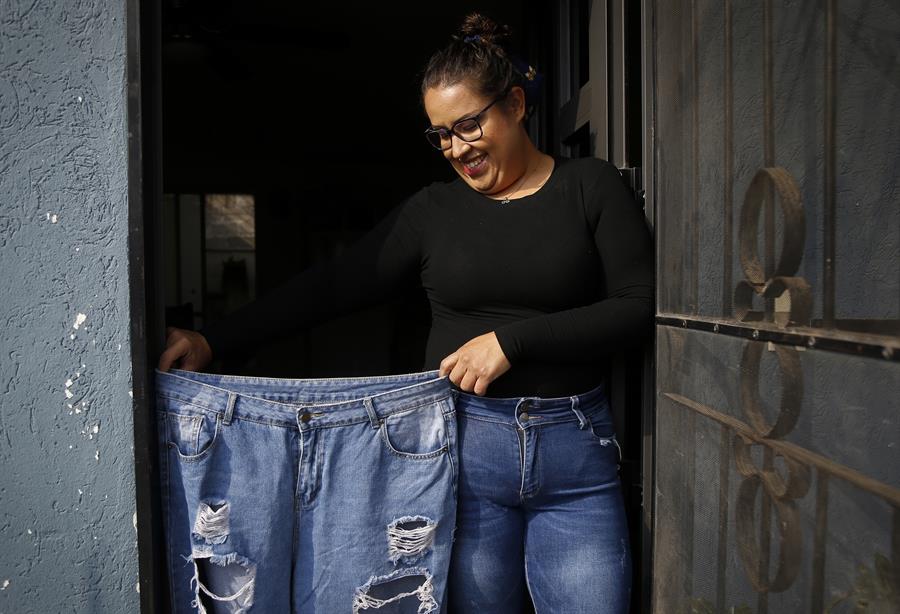Gastrectomy or gastric sleeve surgeries are increasingly performed among people who require another type of treatment for obesity and among increasingly younger people, specialists agree on World Obesity Day, which is commemorated this Friday.
The doctor Martha Patricia Sánchez, head of the Bariatric Surgery Unit of the Civil Hospital of Guadalajara, said that in recent years these types of surgeries have been on the rise not only because they are relatively easy and cheap procedures to perform, but also because patients They do not have information on its implications in the short and medium-term.
“Many uncertified doctors or with inadequate ethics offer them a sleeve because it is what they know how to do and because they charge it cheaper than a gastric bypass, many people go for the sleeve because of the price,” said the bariatric.
Gastrectomy is a surgical procedure indicated for weight loss, which is performed in a minimally invasive way through laparoscopy, with which various instruments are inserted to remove up to 80% of the stomach and reduce the amount of food that the patient eats.
To undergo a gastric sleeve, the patient must carry out a protocol for measuring glucose, weight, body fat index, and other tests that define possible chronic degenerative diseases, as well as a psychological evaluation, to know if he is a candidate for this surgery or one of another complexity.
That the obese patient chooses an option that does not fit their characteristics or does not have adequate follow-up causes the treatment to fail and they regain weight instead of losing kilos, he added.
Obesity specialist José Castañeda said that the gastric sleeve surgeries he has performed on adolescents or young adults have increased by more than 20 in recent years, due to the fact that obesity is present in children of very early ages.
“In young people, it is something that is being done more frequently, unfortunately, we are detecting cases of diabetes in children in Mexico and here we need to make parents aware because this is a serious health problem,” he said.
Mexico is the first place in childhood obesity and the second with more adult patients with morbid obesity in the world.

NEW LIFE
In August 2021, Vianey Cabrera Rodríguez underwent a gastric sleeve to combat the more than 120 kilos that she weighed at that time and that she had not been able to lose with any type of diet.
The 31-year-old said that she learned about this procedure just a month before, after hearing the testimony of a singer and an “influencer” who had undergone this surgery. The heaviness, the permanent tiredness, and sleep as well as the depression she felt due to her discomfort with her loose clothing made her decide on this option.
“I was aware of some things but I did nothing to change them, it was very difficult for me to be on a diet, it was very complicated, I was in bad shape, my head ached, I was hungry all the time, but my back also hurt, my knees, I did not fit the clothes”, he explained.
Six months after the surgery, Cabrera Rodríguez lost 30 kilos and hopes to lose at least another 20 with the changes in diet and physical activity that he has incorporated into his life and that has improved his self-esteem and lessened the depression he felt.
Psychological follow-up is one of the most important aspects for this type of patient since many of them have psychiatric illnesses such as anxiety and depression that prevent them from losing weight and consuming more calories than they should, says Dr. Castañeda.
“That is the main problem we have, patients undergo surgery and if they are not emphasized that these problems of not being treated after surgery are destined for the surgery to become a failure, hence the importance that undergo multidisciplinary management with psychologists and nutritionists,” he explained.
This management includes daily physical activity that allows them not only to lose weight but also to promote a state of well-being that counteracts the emotional.
“Even if they have the best surgery, the best diet or physical activity, if they have a psychiatric illness they will not progress adequately and in the end, they will blame the surgery or they will seek to have other types of more extreme treatments,” he concluded.



















































































